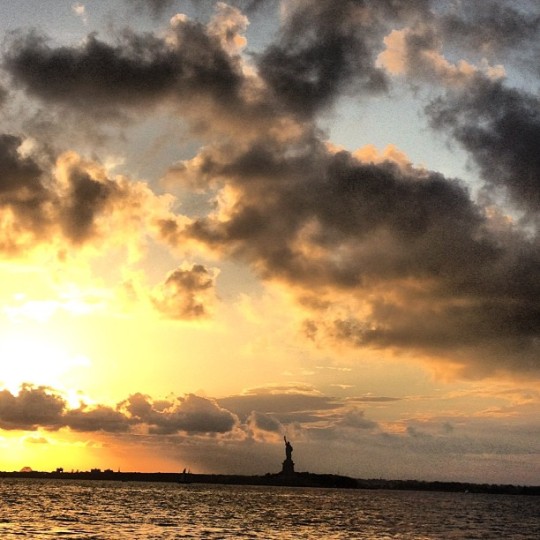Link
by Sabrina Rubin Erdely
Every morning, Brittany Geldert stepped off the bus and bolted through the double doors of Fred Moore Middle School, her nerves already on high alert, bracing for the inevitable.
"Dyke."
Pretending not to hear, Brittany would walk briskly to her locker, past the sixth-, seventh- and eighth-graders who loitered in menacing packs.
"Whore."
Like many 13-year-olds, Brittany knew seventh grade was a living hell. But what she didn't know was that she was caught in the crossfire of a culture war being waged by local evangelicals inspired by their high-profile congressional representative Michele Bachmann, who graduated from Anoka High School and, until recently, was a member of one of the most conservative churches in the area. When Christian activists who considered gays an abomination forced a measure through the school board forbidding the discussion of homosexuality in the district's public schools, kids like Brittany were unknowingly thrust into the heart of a clash that was about to become intertwined with tragedy.
0 notes
Link
0 notes
Link
The life of a small town druggist
by Peter Hessler
In the southwestern corner of Colorado, where the Uncompahgre Plateau descends through spruce forest and scrubland toward the Utah border, there is a region of more than four thousand square miles which has no hospitals, no department stores, and only one pharmacy. The pharmacist is Don Colcord, who lives in the town of Nucla. More than a century ago, Nucla was founded by idealists who hoped their community would become the “center of Socialistic government for the world.” But these days it feels like the edge of the earth. Highway 97 dead-ends at the top of Main Street; the population is around seven hundred and falling. The nearest traffic light is an hour and a half away. When old ranching couples drive their pickups into Nucla, the wives leave the passenger’s side empty and sit in the middle of the front seat, close enough to touch their husbands. It’s as if something about the landscape—those endless hills, that vacant sky—makes a person appreciate the intimacy of a Ford F-150 cab.
0 notes
Link
by Jose Antonio Vargas
One August morning nearly two decades ago, my mother woke me and put me in a cab. She handed me a jacket. “Baka malamig doon” were among the few words she said. (“It might be cold there.”) When I arrived at the Philippines’ Ninoy Aquino International Airport with her, my aunt and a family friend, I was introduced to a man I’d never seen. They told me he was my uncle. He held my hand as I boarded an airplane for the first time. It was 1993, and I was 12.
0 notes
Link
by Ken Murray
Years ago, Charlie, a highly respected orthopedist and a mentor of mine, found a lump in his stomach. He had a surgeon explore the area, and the diagnosis was pancreatic cancer. This surgeon was one of the best in the country. He had even invented a new procedure for this exact cancer that could triple a patient’s five-year-survival odds–from 5 percent to 15 percent–albeit with a poor quality of life. Charlie was uninterested. He went home the next day, closed his practice, and never set foot in a hospital again. He focused on spending time with family and feeling as good as possible. Several months later, he died at home. He got no chemotherapy, radiation, or surgical treatment. Medicare didn’t spend much on him.
0 notes
Link
by Miah Arnold
The children I write with die, no matter how much I love them, no matter how creative they are, no matter how many poems they have written, or how much they want to live. They die of diseases with unpronounceable names, of rhabdomyosarcoma or pilocytic astrocytoma, of cancers rarely heard of in the world at large, of cancers that are often cured once, but then turn up again somewhere else: in their lungs, their stomachs, their sinuses, their bones, their brains. While undergoing their own treatments, my students watch one friend after another lose legs, cough up blood, and enter a hospital room they never come out of again.
0 notes
Link
The re-education of an American teacher
by Garret Keizer
In the fall of 2010, after a fourteen-year hiatus from the classroom and at the unpropitious age of fifty-seven, I began a one-year job filling in for a teacher on leave from the same rural high school, in Orleans, Vermont, that I’d entered as a rookie thirty years before. I signed on mainly because my wife and I needed health insurance. The reason I had trained to be an English teacher in the first place was my parents’ insistence that I graduate from college with a trade, “poet” falling short of the mark in their eyes. It’s fair to say that I have never worked in a school with what might be called purity of heart, though much of what I know about purity of heart I learned there.
0 notes
Photo

Lady Liberty #whpgoldenhour #nyc #nofilter
0 notes
Quote
Occasionally, too, you hear rumours of a more distant place—a land of strip malls and polygamist cults, ravaged by hurricanes and populated entirely by Republicans, televangelists and spree killers—otherwise known as “America”. But the general thinking seems to be that while this unpleasant addition to the otherwise fine island of Manhattan may have been necessary at some point in the nation’s history, these days it is best avoided if at all possible.
Intelligent Life Magazine, Winter 2010
0 notes
